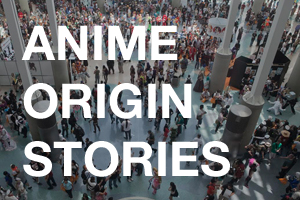Here’s one thing I never told you: some of my most esteemed otaku journalism heroes never considered themselves to be otaku journalists. I’m talking about:
Oprah Winfrey, whose passionate reporting got her fired from her first job.
“As a reporter, you’re not supposed to empathize with the people that you’re reporting on, and it’s very difficult to be writing copy when somebody’s been in an accident,” she said later.
Today, Oprah’s empathy for her interview subjects and audience alike is what has made her so unique and relatable among TV personalities.
Rachel Carson, who wrote about what she loved intending to help her audience feel the same. Her poetic environmentalist opus, Silent Spring, doesn’t come from a distance.
Though she was careful to meticulously fact-check every detail, Carson let her writing speak through the everyday voices of farmers and housewives—along with noted biologists. Her writing wasn’t so much about the science behind pesticides, as it was about introducing readers to the people and communities who felt its effects most intimately.
As Carson once said, “It is not half so important to know as to feel.”
Tom Wolfe, who helped found “the New Journalism” and, more so than writing mechanically about the events of his day, told entertaining stories that happened to be true.
Wolfe believed that the journalist was as much a character in his stories as any source. He argued that his entrenched position in the community he was reporting on lent him accuracy.
“I am the first to agree that the New Journalism should be as accurate as traditional journalism,” he said. “In fact my claims for the New Journalism, and my demands upon it, go far beyond that. I contend that it has already proven itself more accurate than traditional journalism—which unfortunately is saying but so much…”
What I call Otaku Journalism has gone by a lot of different names. It’s been called “Saturated Journalism,” “Submersion Journalism,” “New Journalism,” and even, “The New New Journalism.” Sometimes, it’s in the first person, sometimes not. But every time, it refers to a kind of reporting that acknowledges the reporter’s flawed position as a human observer—and makes attempts to enhance, rather than minimize, the reporter’s impassioned stance.
After all this time, aspiring journalists are still taught to put away our leanings and to keep our distance, even though we know this doesn’t actually lead to more interesting—and certainly not more accurate or informed—journalism. I also don’t think that acknowledging your humanity and that of your audience is at odds with a carefully fact-checked, true story.
I coined “Otaku Journalism” because, as a geek, the kind of deep involvement that I saw in my favorite journalistic essays immediately looked like otaku fandom to me: the obsessive, life-consuming passion for absorbing everything there is to know about a subject. I still prefer this title to the vague “New Journalism.” It makes it apparent that, in my opinion at least, the reporting worth reading is done by the journalists who geek out about what they do.




3 Comments.
Interestingly, this reminds me some of what is termed as “participant observation” in anthropology. At least what I recall of it from my degree in the discipline from some years ago.
[…] medio animanga, la periodista estadounidense Lauren Rae Orsini le da un sentido en su artículo “Why you might already be an otaku journalist?” al hacerla parte de “The New New Journalism” (“el nuevo nuevo […]
[…] medio animanga, la periodista estadounidense Lauren Rae Orsini le da un sentido en su artículo “Why you might already be an otaku journalist?” al hacerla parte de “The New New Journalism” (“el nuevo nuevo […]